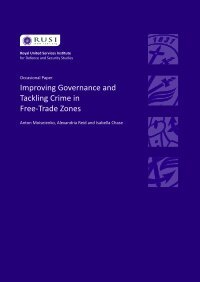By Max G. Manwaring.
This monograph is intended to help political, military, policy, opinion, and academic leaders think strategically about explanations, consequences, and responses that might apply to the volatile and dangerous new dynamic that has inserted itself into the already crowded Mexican and hemispheric security arena, that is, the privatized Zeta military organization. In Mexico, this new dynamic involves the migration of traditional hard-power national security and sovereignty threats from traditional state and nonstate adversaries to hard and soft power threats from professional private nonstate military organizations. This dynamic also involves a more powerful and ambiguous mix of terrorism, crime, and conventional war tactics, operations, and strategies than experienced in the past. Moreover, this violence and its perpetrators tend to create and consolidate semi-autonomous enclaves (criminal free-states) that develop in to quasi-states—and what the Mexican government calls “Zones of Impunity.” All together, these dynamics not only challenge Mexican security, stability, and sovereignty, but, if left improperly understood and improperly countered, also challenge the security and stability of the United States and Mexico’s other neighbors..
Carlisle, PA: U.S. Army War College Press, 2009. 53p.





















